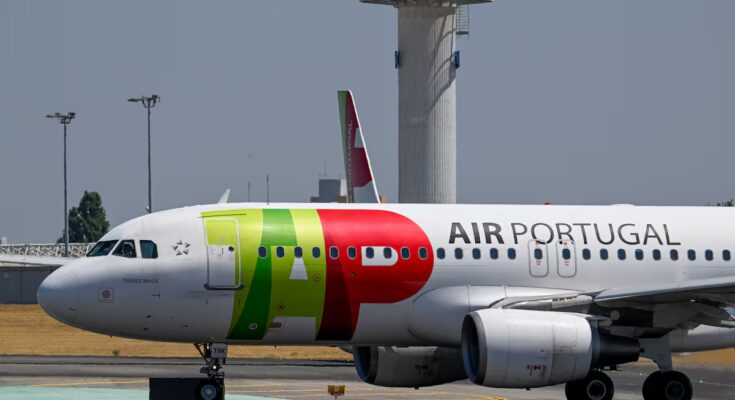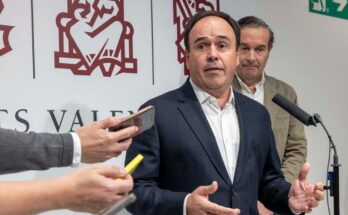The first privatization of the Portuguese airline TAP went smoothly. It happened in 2015 and, ten years later, led to 25 searches of the company’s offices, as well as several law firms, companies and public bodies linked to that sale to the Atlantic Gateway consortium. The Central Investigation and Prosecution Department of the Prosecutor’s Office, which heads investigations into possible crimes of corruption, fraud and malicious administration, among others, did not order any arrests at the end of Tuesday’s searches, but said “subjects(accused) to two companies and two people, whose identity was not revealed in a note issued at the last minute, although the Now television channel specified that they were the entrepreneur Humberto Pedrosa and his son David, owners of the Barraqueiro group.
Pedrosa collaborated with the Brazilian entrepreneur David Neeleman in the Atlantic Gateway consortium, chosen by the government chaired by Pedro Passos Coelho (Social Democratic Party, centre-right) to sell him 61% of the airline, which ten years ago was in a difficult financial situation. The crisis linked to the pandemic and the political change in the government, with the arrival of the socialist António Costa, would end up causing a renationalization of TAP. To save it from bankruptcy, the state would end up investing 3.2 billion euros in public aid.
It was the airline’s new administration that commissioned an audit into the 2015 privatization and other anomalous transactions. The Treasury General Inspectorate’s report a year ago revealed that the buyers had devised a financial plan to buy TAP with TAP’s own funds in a three-way deal between Atlantic Gateway’s partners, Airbus and the Portuguese airline.
In their report, the tax inspectors concluded that “the additional capital contributions made by Atlantic Gateway to TAP came from Airbus funds that TAP itself, through subsequently stipulated contracts, undertook to pay, therefore not coming directly from the shareholder Atlantic Gateway, but from a third party with a direct interest in the company’s business and through funds which it would then recover through payments that contractually bound TAP.” In the agreement with the Government, the buyers have committed to contributing 338 million euros, which will be added to the initial 10 million paid. But the injection would come through an Airbus loan of 202 million euros after TAP committed to buying 53 planes and canceled its request for 12 A350s.
The Treasury inspection found other anomalies such as the simulation of evasive contracts for the three senior officials of TAP, David Neeleman, Humberto Pedrosa and his son David, or the adoption of measures devoid of economic rationality which would end up causing huge losses to the Portuguese airline for its activities in Brazil. This report was sent to the Prosecutor’s Office, which began an investigation into privatization in 2023.
The recent phases of the judicial investigation coincide with the new privatization process approved this summer by the current government, which once again has a PSD prime minister, Luís Montenegro, at the helm. A decade after that failed experience, the deadline to opt for the purchase of TAP is about to expire, which is of particular interest to already consolidated groups such as Lufthansa, IAG or Air France-KLM. The latter was the first to formalize a proposal to acquire 44.9%, the percentage that the Government is putting up for sale. Another 5% goes to workers, while 50.1% will remain in public hands. The deadline for submitting applications expires next Saturday, the 22nd.
To avoid experiences like the one in 2015, the Portuguese government will only accept proposals from “significantly sized” airlines, which leaves operators from other areas or airlines with little strength out of the picture. The buyer will have the freedom to manage the day-to-day business, but not to make decisions that affect the routes or the center of Lisbon, which will require a majority vote. First of all, the most disadvantageous situation in this race is that of IAG because the Portuguese government fears that the proximity between Lisbon and Madrid could reduce the weight of the Portuguese capital to the advantage of the Spanish one, Iberia’s operational centre.



